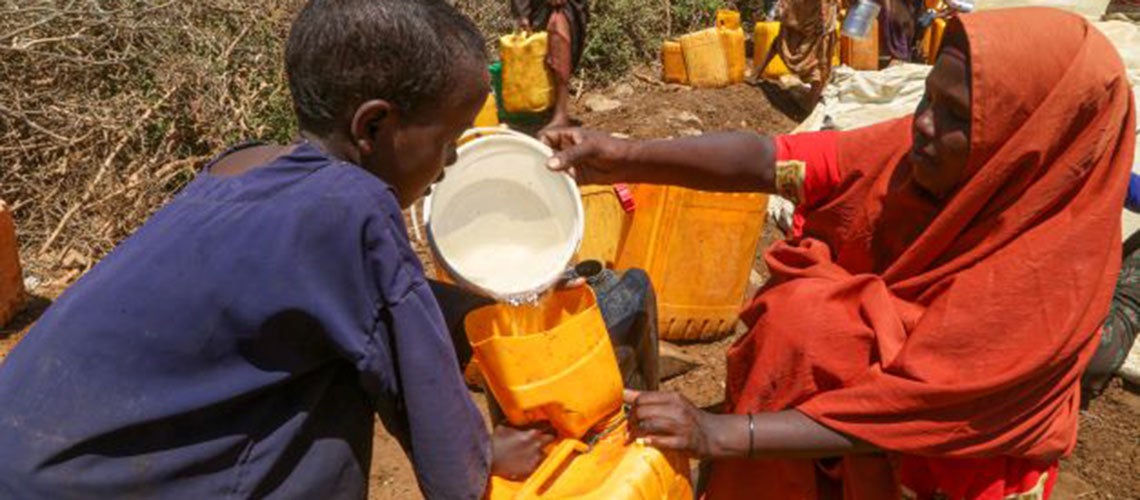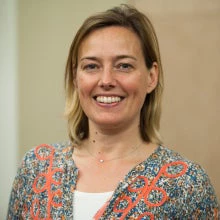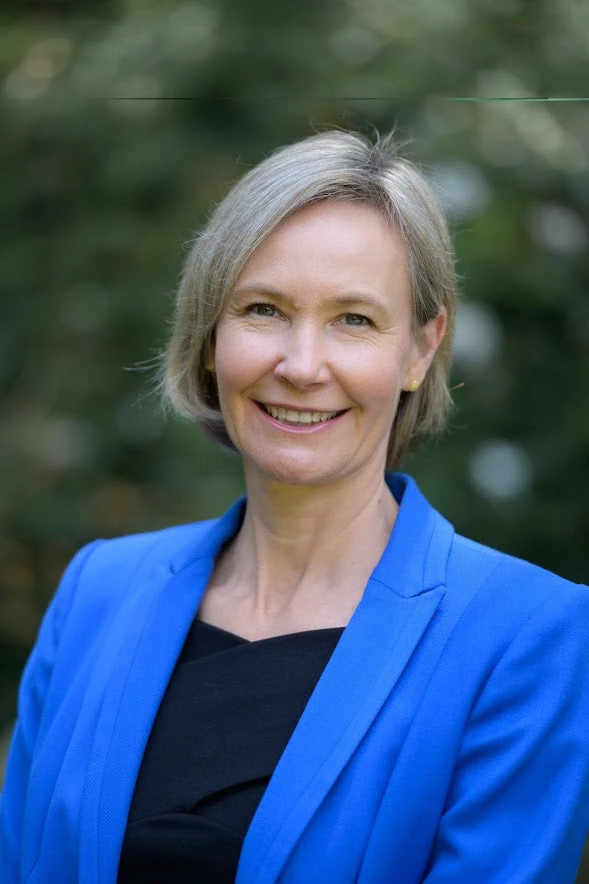 Marking International Women’s Day: Why women and girls matter in Somalia’s climate crisis
Marking International Women’s Day: Why women and girls matter in Somalia’s climate crisis
Last December, 13-year old Hodan and her mother would walk up to 40 kilometers daily, in the scorching sun, looking for water. She dropped out of school to help as water sources became scarce. Today, Hodan lives in a camp for internally displaced people as the drought forced her family to leave the village. Attending school regularly has become increasingly difficult.
Hodan’s story is not unique in Somalia which is the 4th most gender inequitable country in the world. 56% of women cannot read. 36% of Somali girls are married before they turn 18. 692 of every 100,000 women die giving birth. These are just some of the statistics likely to be exacerbated as Somalia goes through a devastating drought that has affected millions. The reality is, that with every catastrophic event (COVID-19, natural disasters, or conflict), there is a risk of widening gender gaps in access to health, education, jobs, freedom from violence and participation in public life. Addressing the needs of women and girls in these crises is urgent. As the recent Country Economic Memorandum shows, women’s full participation in the labor force is essential to pulling the almost 70% of Somalis out of poverty.
The lived experiences of Somali women and girls from previous climate crises indicates how this drought is likely to affect women and girls
Firstly, women and girls (especially pregnant and nursing women) are at risk of malnutrition as they are often the last to eat and first to skip meals at home during droughts. With food scarcity, women and girls might be forced to sell or exchange sex for food.
Secondly, water collection labor (a traditionally female task) means that women and girls walking increased distances in search of water are at risk of violence. Girls might drop out of school and women have less time to engage in economic activities or domestic labor.
Thirdly, female-headed households risk losing income. Everyone’s source of livelihoods are disrupted in droughts but unlike men, Somali women face additional restrictions on their mobility, types of jobs they have access to, capital and business networks. With male migration, women become breadwinners, while continuing to be responsible for childcare and unpaid domestic labor.
The fourth risk is a lack of access to critical services, including health, financial and social protection services.
Lastly droughts can exacerbate risks of gender-based violence in all its forms. Women walking long distances are at risks of sexual exploitation and assault. Families desperate for income, might force girls into early marriage. Displaced women and girls sleeping in open spaces or overcrowded camps without security are at grave risk of violence. Women (at home or in camps) are at higher risks of intimate partner violence as men resort to negative coping strategies. These women often can’t access their usual support systems and must navigate how to find critical services.
What is the World Bank’s approach? Since re-engagement with Somalia in 2012, the World Bank Group has committed nearly USD 1.5 billion to the government of Somalia to help tackle poverty. We have endeavored to ensure women and girls are central to these efforts, not just as beneficiaries but also as change agents. To respond to the drought, we invested in accelerating cash transfers, and livelihoods support to female headed households through existing programs.
We are also focused on longer term investments to build a strong foundation for gender equality. These include addressing challenges women pastoralists face, facilitating women’s access to financial services , and providing health services to women. The Somalia Recurrent Cost and Reform Financing Project for example, expanded the Female Healthworker Program from just 377 workers to a planned 3000 workers by 2023. This can be the backbone of a grassroots, women-centered health system.
The upcoming “Somalia Empowering Women through Education and Skills” Project plans to improve literacy but also offers “second-chance” education for girls who dropped out of school. It invests heavily in leadership training, so women get the skills, confidence and networks to be leaders in government, private sector, and civil society. Breaking the glass ceiling for women is hard work everywhere -we are both from Sweden and saw our first ever female prime minister elected just six months ago! We remain humbled by Somali women who insist their voices be heard.
Examples like these are not just a moral imperative, but simply good and effective development practice.
Somalia Women’s Empowerment Platform
We need a systematic approach that supports women and girls throughout their lives –in times of crises, and peace. Recognizing this, the World Bank established the Somalia Women’s Empowerment Platform in 2021. It is a multi-year, multi-sectoral initiative to advance investment in gender equality across Bank funded projects, to conduct frontier research, and to expand policy dialogue and knowledge-sharing on gender. It is a key resource to address the shifting challenges confronting women and girls, as well as men and boys, in Somalia.
The impacts of the climate crisis must jolt us into moving with greater urgency to address gender gaps. We remain committed to our collaboration with the government of Somalia on this front. Women in Somalia have been fierce champions for equality, and we must now amplify their voices to achieve broader development outcomes for everyone. We cannot wait another generation for gender equality in Somalia. Development for the entire country cannot happen if 50% of the population is left out.



Join the Conversation